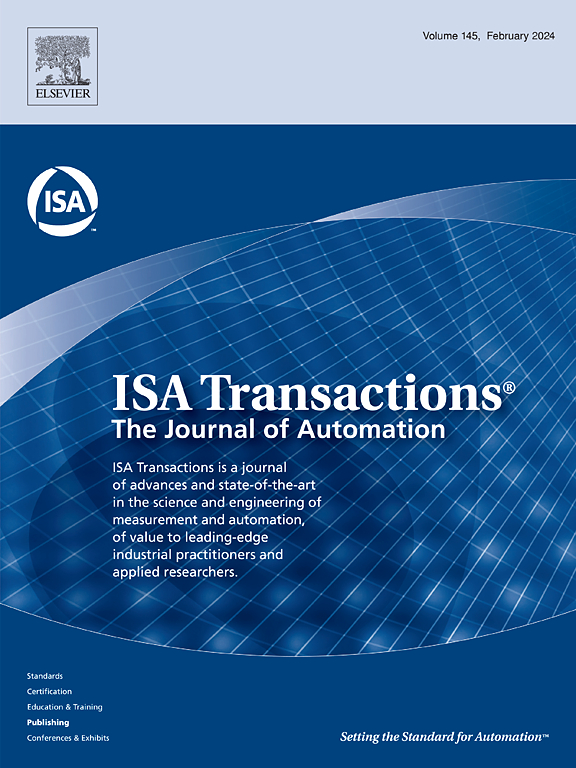基于饱和度的欧拉-拉格朗日系统自调整鲁棒控制设计
IF 6.5
2区 计算机科学
Q1 AUTOMATION & CONTROL SYSTEMS
引用次数: 0
摘要
对可以用欧拉-拉格朗日(EL)形式表示的系统系列进行控制,从理论角度看具有挑战性,但也适用于广泛的实际系统。对于这类控制问题,由于任何参数估计误差和干扰都无法直接解决,系统性能会恶化,稳定性也无法预先推断。考虑到这些问题,本研究提出了一种基于饱和函数、无模型、连续鲁棒控制器的设计和相应分析,适用于以 EL 形式表示的机械系统。为了避免大多数鲁棒和高增益控制设计中常见的控制器输入颤振问题,所提出的方法使用了连续可微分项。通过基于 Lyapunov 的严格论证,确保了闭环系统的稳定性。为了简化控制器增益的调整,提出了一种自适应增益调整算法作为附加算法。通过对双转子多输入多输出系统(TRMS)模型的仿真研究,证明了该控制器的有效性。此外,还在内部构建的、本质上不稳定、因此极其敏感的移动机器人平台上测试了所提方法的可行性。在实验研究中,控制器和增益调整算法都获得了令人满意的性能,滚动角和俯仰角误差小于 0.5°,偏航方向误差小于 1°。本文章由计算机程序翻译,如有差异,请以英文原文为准。
A saturation based self-tuned robust control design for Euler Lagrange systems
Control of the family of systems that can be represented in the Euler Lagrange (EL) form is both challenging from a theoretical perspective and applicable to a broad spectrum of real systems. For this type of control problem, given that any parameter estimation error and disturbances are not directly addressed, the system performance deteriorates, and stability cannot be deduced in advance. Considering these issues, this work presents the design and the corresponding analysis of a saturation function based, model-free, continuous robust controller for mechanical systems represented in the EL form. In order to avoid chattering in controller input, which is a common problem in most robust and high-gain control designs, the proposed method makes use of continuously differentiable terms. The stability of the closed-loop system is ensured via rigorous Lyapunov-based arguments. To ease the tuning of the controller gain, an adaptive gain-tuning algorithm is proposed to be applied as an add-on. The effectiveness of the controller is demonstrated by a simulation study on a twin rotor multi-input–multi-output system (TRMS) model Furthermore, the feasibility of the proposed method is then tested on an in-house built, inherently unstable, and therefore extremely sensitive mobile robotic platform. In the experimental study, satisfactory performances are attained for both the controller and the gain-tuning algorithm where less than error is obtained in roll and pitch angles and less than error is achieved in the yaw direction.
求助全文
通过发布文献求助,成功后即可免费获取论文全文。
去求助
来源期刊

ISA transactions
工程技术-工程:综合
CiteScore
11.70
自引率
12.30%
发文量
824
审稿时长
4.4 months
期刊介绍:
ISA Transactions serves as a platform for showcasing advancements in measurement and automation, catering to both industrial practitioners and applied researchers. It covers a wide array of topics within measurement, including sensors, signal processing, data analysis, and fault detection, supported by techniques such as artificial intelligence and communication systems. Automation topics encompass control strategies, modelling, system reliability, and maintenance, alongside optimization and human-machine interaction. The journal targets research and development professionals in control systems, process instrumentation, and automation from academia and industry.
 求助内容:
求助内容: 应助结果提醒方式:
应助结果提醒方式:


